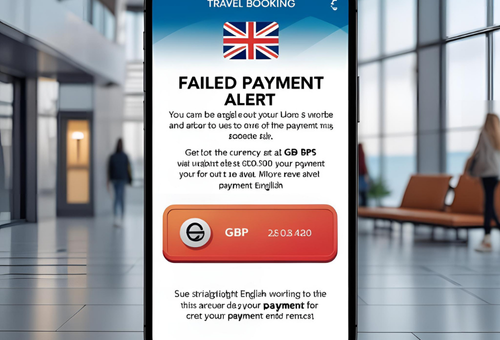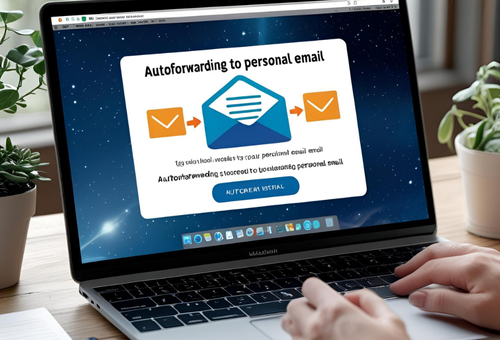(3 min read)
You’re packing for the beach, juggling kids, cancelling meetings. A notification pings:...
“Booking update – payment issue with your flight ✈️ Click here to verify.”
You’re distracted. You click. It looks fine. You fill in your card details.
Only later do you realise; that it wasn’t Ryanair or Booking.com. It was a scam.

In summer 2025, thousands of UK and EU travelers were hit by travel-themed phishing scams, spoofed Wi-Fi portals, and fake booking confirmations. Scammers know we’re more distracted when we travel — and they strike when our guard is down.
Why Smart People Slip Up on Holiday
This isn’t about being careless. It’s about being human. Behavioural science explains why:
- Context-dependent memory – The habits we follow at work don’t always travel with us. Put us in flip-flops, and we forget what we’d never do at our desk.
- Hot–cold empathy gap – We underestimate how our decisions change when we’re tired, distracted, or in a hurry
- Peak–end rule – We remember the emotional high point and end of a trip. Cyber hygiene doesn’t usually feature — unless it goes wrong
- Present bias – We prioritise immediate ease (e.g. get the boarding pass) over future risk (e.g. stolen credentials)
Real-World Examples from Summer 2025
 Viktoria’s Booking.com scam – Viktoria Tkach, a university student from Greenwich, received a message via the Booking.com app stating her hotel payment had failed. Under time pressure and trusting the app, she paid £791 to what turned out to be a scammer. She only realised the error on arrival. Booking.com eventually refunded her after media intervention. (Sky News)
Viktoria’s Booking.com scam – Viktoria Tkach, a university student from Greenwich, received a message via the Booking.com app stating her hotel payment had failed. Under time pressure and trusting the app, she paid £791 to what turned out to be a scammer. She only realised the error on arrival. Booking.com eventually refunded her after media intervention. (Sky News)
- Emma’s fake villa nightmare – Emma Last and her family from Chorley booked a luxury villa in Mallorca via a site impersonating Oliver’s Travels. They transferred over £4,000, only to discover hours before their flight that the villa didn’t exist. The emotional and financial toll on her family was significant. Some funds were recovered, but flight losses remained.
- Spoofed Wi-Fi networks – A man in Australia was charged with setting up fake airport Wi-Fi hotspots to steal users’ logins. Similar scams have been reported across Europe, especially at tourist-heavy hubs. (The Guardian)
- Sensitive files forwarded from corporate to personal email for “just a quick edit” during travel
6 No-Nonsense Steps for Safer Travel
- Don’t use public Wi-Fi for anything sensitive. No banking, no logins. Use mobile data or a VPN (Virtual Private Network – ask us if you’re unsure).
- Set a ‘holiday plan’ with your team. Define how you’ll handle approvals, file access, and “urgent” requests before you leave.
- Turn off auto forwarding from work to personal email. It is convenient — and it bypasses every layer of enterprise security.

- Don’t click booking links in emails. Go directly to the official site or app. Always.
- Use password managers and biometrics (fingerprint, face ID). They reduce typing errors and help avoid fake login pages.
- Watch for urgency + reward. “Fix this fast” + “Keep your upgrade” = classic scam combo.
On holiday, we change context — and context changes behaviour. That’s when scammers strike: not because we’re reckless, but because we’re relaxed.

Cyber security isn’t just for the office. It should travel with you.
👉 Want to build habits that stay with people — even on holiday? Why not read our previous blog: Getting into the Habit – of Better Cyber Security
At Psybersafe, we make it easy: short, fun monthly episodes that help your team build stronger habits without even breaking a sweat. If you want to come back from holiday to good news (and not a cyber mess), drop us a line at This email address is being protected from spambots. You need JavaScript enabled to view it..
We love behavioural science. We’ve studied it and we know it works. If you want to know more about the science of persuasion and influence and behavioural science in general have a look at our sister site https://influenceinaction.co.uk/
Sign up to get our monthly newsletter, packed with hints and tips on how to stay cyber safe.
 Mark Brown is a behavioural science expert with significant experience in inspiring organisational and culture change that lasts. If you’d like to chat about using Psybersafe in your business to help to stay cyber secure, contact Mark today.
Mark Brown is a behavioural science expert with significant experience in inspiring organisational and culture change that lasts. If you’d like to chat about using Psybersafe in your business to help to stay cyber secure, contact Mark today.